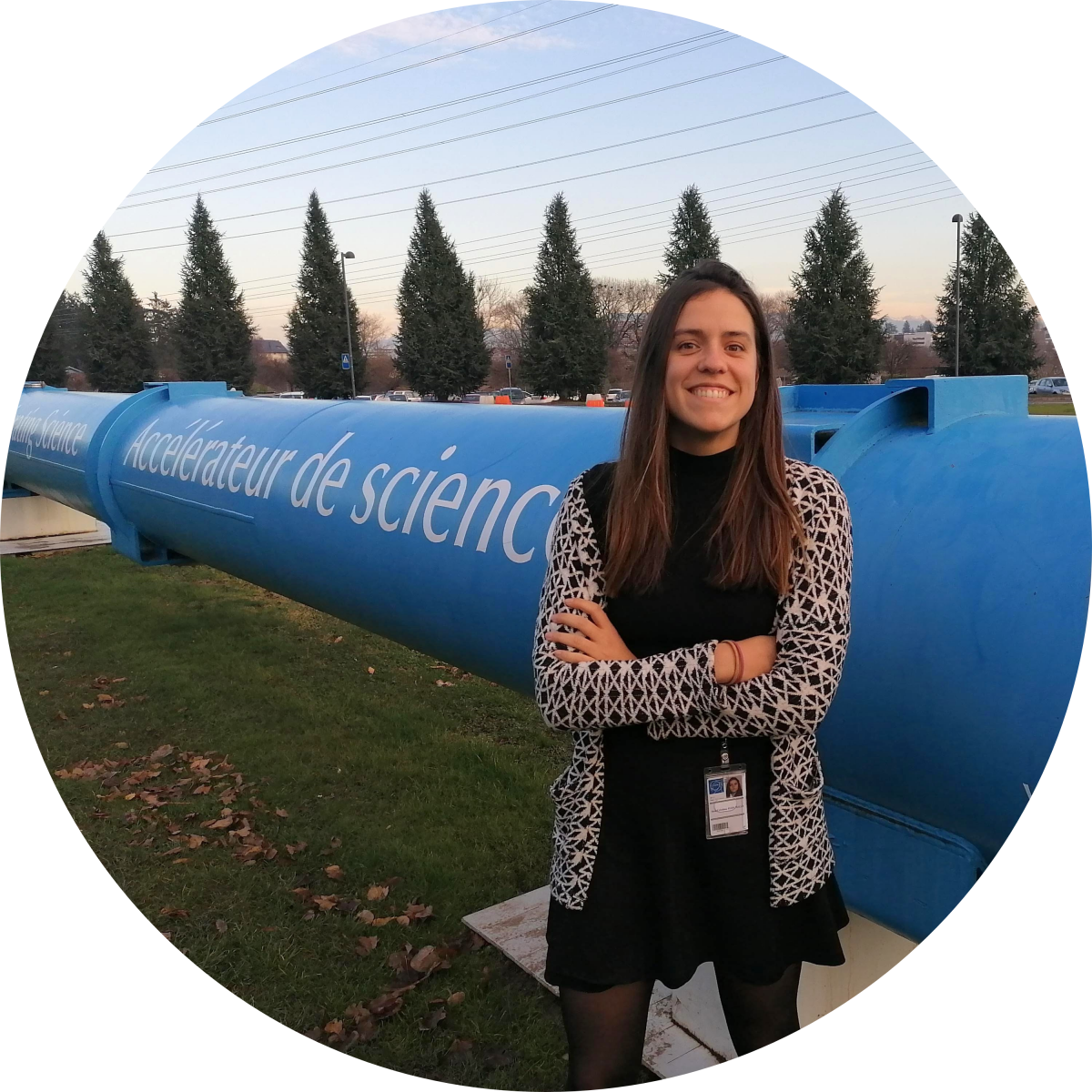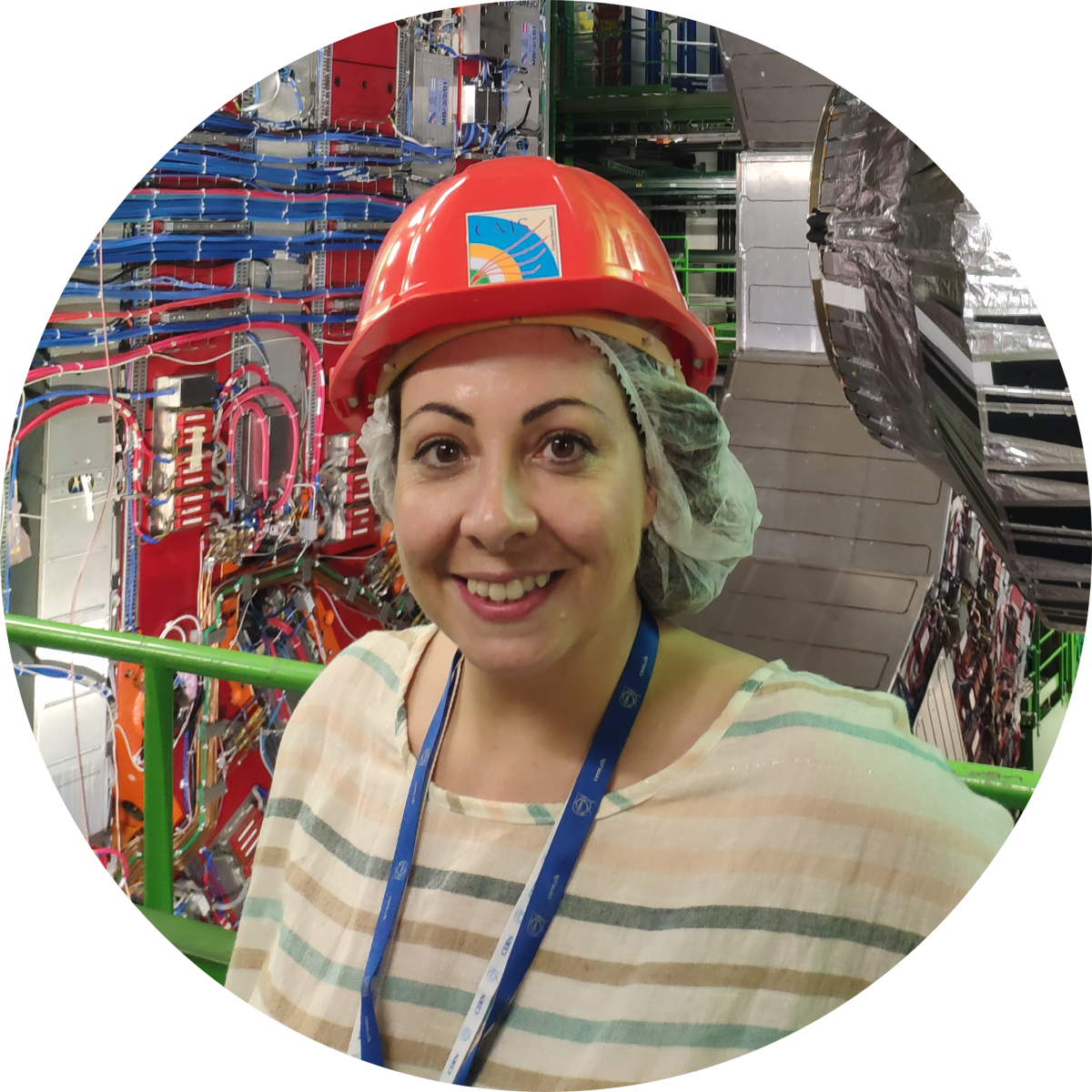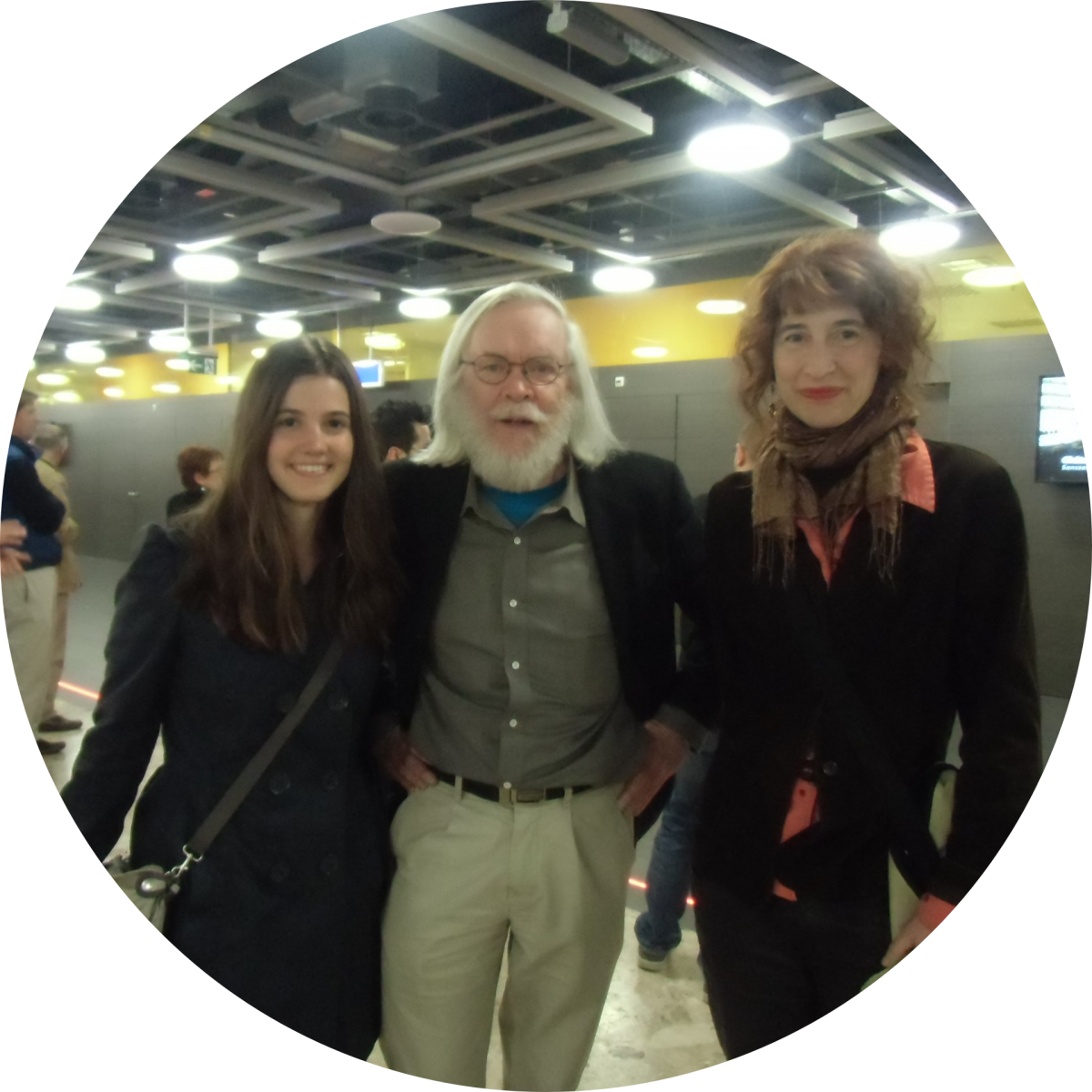It was in her early days as a physics student at the University of Valencia (Spain), that she first heard about CERN. Since then, Maite, a former physics teacher born in the Basque Country, has maintained a very special relationship with this huge international lab.
During her university years, Maite met José Bernabeu Alberola, a quantum physics Professor, who became the first Spanish researcher working at the CERN Theoretical Physics division. Under Bernabeu’s assessment, and together with other four classmates, Maite participated in an international conference for students with a paper called: CERN, Physics breaking frontiers. Through it, they wanted to highlight the role of CERN in building peace in Europe, and throughout the world.
The end of Maite’s studies coincided with the birth of the Web by Tim Berners-Lee. She remembers being absolutely fascinated by what CERNies were doing. Many years later, Maite participated in the PopScience poetry 2014, organised by CERN. She was the winner in Spanish. “Only three poems”, she remembers with fun and gratefulness. As a prize, her poems were published under the title, “Niños eternos”, with a prologue by Álvaro de Rújula.
Today, Maite works as a researcher at Ibercivis Foundation, a Spanish private non-profit foundation located in Zaragoza, from which they develop and promote Citizen Science. She likes very much how Francisco Sanz, the current executive director of Ibercivis, sometimes summarizes the definition of this methodology in just three words: People doing science.
Maite is working in her doctoral research at the University of the Basque Country. The topic? It is based on two central ideas: a better understanding and practice of citizen science, together with the vision of scientific knowledge as a common asset.
From her time as a high school teacher, Maite misses teaching physics, being in the classroom with her students and at recess with her mates. Also, the bond with teenagers and their families. It was “smiles and tears” (as the Spanish title of The sound of music), but most of all, smiles.
In her years of teaching Maite had the pleasure of visiting CERN with her students. Four times. And she came back on another special occasion accompanied by one of her physics students, Ana Villanueva, who was one of the winners in a contest organized by CERN together with the Prince of Asturias Foundation.
She used to tell her students: Let’s do everything, not only with the necessary effort, but with enthusiasm! This is a key word for Maite, who recommended her students not to apply it only to nice moments, such as a birthday party or a basketball game. Also when taking an exam. They laughed together because enthusiasm seemed incompatible with that.
Always share knowledge was another of her advice. It is not about giving to be given, it is about cooperation. In the end, scientific research is not carried out in isolation. One must be fair and generous at the same time.
She remembers with special affection a Proffesor of her who said, “Don’t get discouraged”, which in Spanish would be “¡No hay que descorazonarse!”. Do not set aside your hearts, even in difficult times.
The Spanish writer and physicist, Agustín Fernández Mallo, once said that “the attitude of the poet and the scientist is the same: to redefine what we thought was stable and closed”. Maite, who totally agrees with him, would even add the philosophers. In her opinion, every one of us has a bit of a scientist, a poet and a philosopher. We are obliged to rethink those issues that seem to be closed. For her, that is science. And that is life.
She wishes the general culture to grow. Also, to foster education and non-formal education, so that anyone can access it. Maite is convinced that knowledge calls for knowledge, and culture does not only live in museums and academies like Plato’s.
Culture is in the street, where Maite can learn from the fruit seller about agriculture, market prices, thermodynamics or the Generation of ‘27. Again, people sharing knowledge.
During her university years, Maite met José Bernabeu Alberola, a quantum physics Professor, who became the first Spanish researcher working at the CERN Theoretical Physics division. Under Bernabeu’s assessment, and together with other four classmates, Maite participated in an international conference for students with a paper called: CERN, Physics breaking frontiers. Through it, they wanted to highlight the role of CERN in building peace in Europe, and throughout the world.
The end of Maite’s studies coincided with the birth of the Web by Tim Berners-Lee. She remembers being absolutely fascinated by what CERNies were doing. Many years later, Maite participated in the PopScience poetry 2014, organised by CERN. She was the winner in Spanish. “Only three poems”, she remembers with fun and gratefulness. As a prize, her poems were published under the title, “Niños eternos”, with a prologue by Álvaro de Rújula.
Today, Maite works as a researcher at Ibercivis Foundation, a Spanish private non-profit foundation located in Zaragoza, from which they develop and promote Citizen Science. She likes very much how Francisco Sanz, the current executive director of Ibercivis, sometimes summarizes the definition of this methodology in just three words: People doing science.
Maite is working in her doctoral research at the University of the Basque Country. The topic? It is based on two central ideas: a better understanding and practice of citizen science, together with the vision of scientific knowledge as a common asset.
From her time as a high school teacher, Maite misses teaching physics, being in the classroom with her students and at recess with her mates. Also, the bond with teenagers and their families. It was “smiles and tears” (as the Spanish title of The sound of music), but most of all, smiles.
In her years of teaching Maite had the pleasure of visiting CERN with her students. Four times. And she came back on another special occasion accompanied by one of her physics students, Ana Villanueva, who was one of the winners in a contest organized by CERN together with the Prince of Asturias Foundation.
She used to tell her students: Let’s do everything, not only with the necessary effort, but with enthusiasm! This is a key word for Maite, who recommended her students not to apply it only to nice moments, such as a birthday party or a basketball game. Also when taking an exam. They laughed together because enthusiasm seemed incompatible with that.
Always share knowledge was another of her advice. It is not about giving to be given, it is about cooperation. In the end, scientific research is not carried out in isolation. One must be fair and generous at the same time.
She remembers with special affection a Proffesor of her who said, “Don’t get discouraged”, which in Spanish would be “¡No hay que descorazonarse!”. Do not set aside your hearts, even in difficult times.
The Spanish writer and physicist, Agustín Fernández Mallo, once said that “the attitude of the poet and the scientist is the same: to redefine what we thought was stable and closed”. Maite, who totally agrees with him, would even add the philosophers. In her opinion, every one of us has a bit of a scientist, a poet and a philosopher. We are obliged to rethink those issues that seem to be closed. For her, that is science. And that is life.
She wishes the general culture to grow. Also, to foster education and non-formal education, so that anyone can access it. Maite is convinced that knowledge calls for knowledge, and culture does not only live in museums and academies like Plato’s.
Culture is in the street, where Maite can learn from the fruit seller about agriculture, market prices, thermodynamics or the Generation of ‘27. Again, people sharing knowledge.


